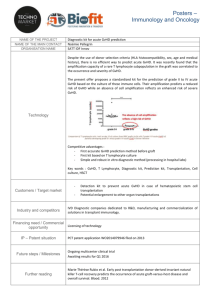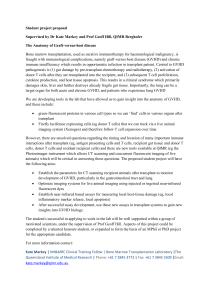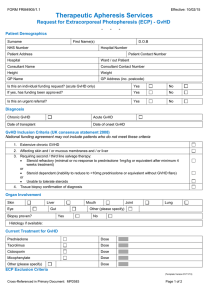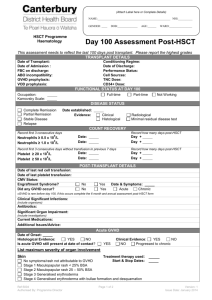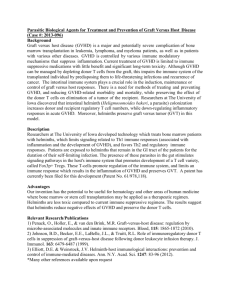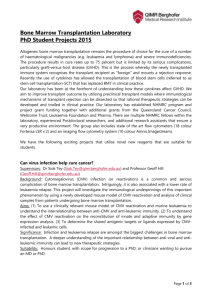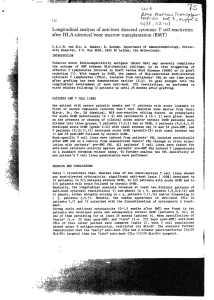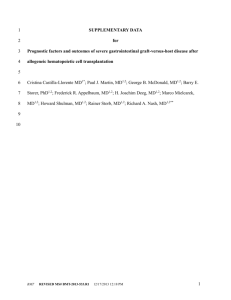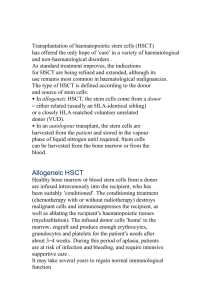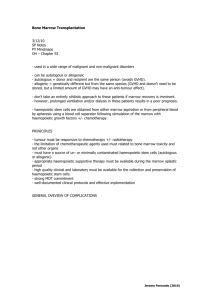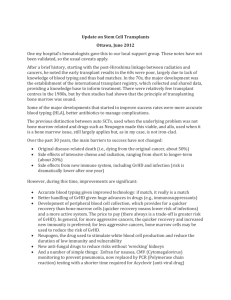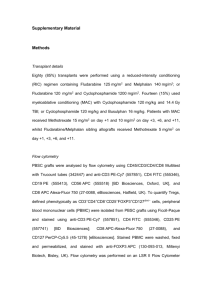graft cells
advertisement
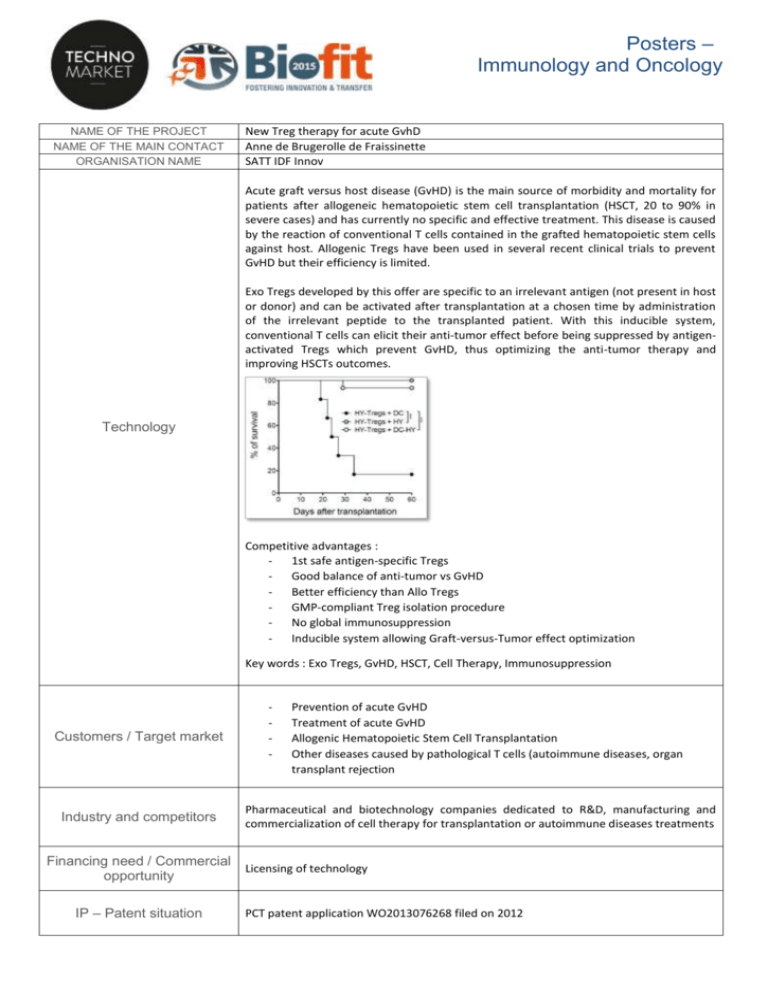
Posters – Immunology and Oncology NAME OF THE PROJECT NAME OF THE MAIN CONTACT ORGANISATION NAME New Treg therapy for acute GvhD Anne de Brugerolle de Fraissinette SATT IDF Innov Acute graft versus host disease (GvHD) is the main source of morbidity and mortality for patients after allogeneic hematopoietic stem cell transplantation (HSCT, 20 to 90% in severe cases) and has currently no specific and effective treatment. This disease is caused by the reaction of conventional T cells contained in the grafted hematopoietic stem cells against host. Allogenic Tregs have been used in several recent clinical trials to prevent GvHD but their efficiency is limited. Exo Tregs developed by this offer are specific to an irrelevant antigen (not present in host or donor) and can be activated after transplantation at a chosen time by administration of the irrelevant peptide to the transplanted patient. With this inducible system, conventional T cells can elicit their anti-tumor effect before being suppressed by antigenactivated Tregs which prevent GvHD, thus optimizing the anti-tumor therapy and improving HSCTs outcomes. Technology Competitive advantages : 1st safe antigen-specific Tregs Good balance of anti-tumor vs GvHD Better efficiency than Allo Tregs GMP-compliant Treg isolation procedure No global immunosuppression Inducible system allowing Graft-versus-Tumor effect optimization Key words : Exo Tregs, GvHD, HSCT, Cell Therapy, Immunosuppression Customers / Target market Industry and competitors Financing need / Commercial opportunity IP – Patent situation - Prevention of acute GvHD Treatment of acute GvHD Allogenic Hematopoietic Stem Cell Transplantation Other diseases caused by pathological T cells (autoimmune diseases, organ transplant rejection Pharmaceutical and biotechnology companies dedicated to R&D, manufacturing and commercialization of cell therapy for transplantation or autoimmune diseases treatments Licensing of technology PCT patent application WO2013076268 filed on 2012 Development phase: in vivo proof of concept in mice Future steps / Milestones Ongoing : Proof of concept with human T-cells in mice Further reading Martin G. et al., Eur. J Immunol. 2013 Contact person Anne de Brugerolle de Fraissinette, Business Developer Healthcare Unit, IDF Innov, adb@idfinnov.com 1/2
